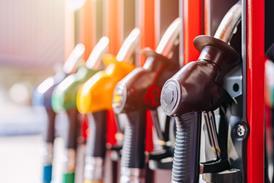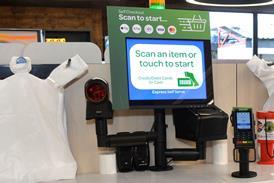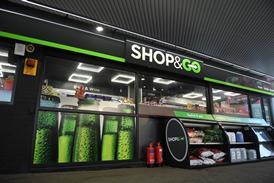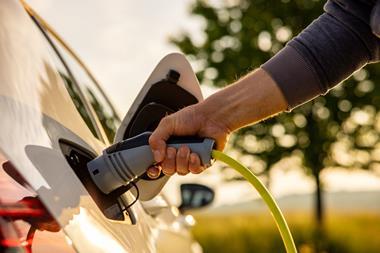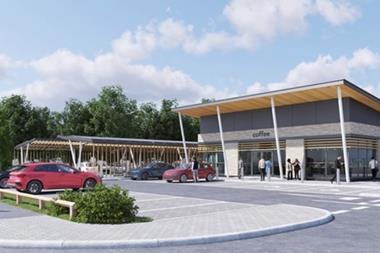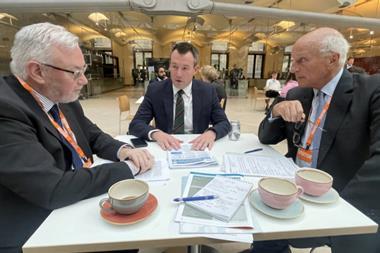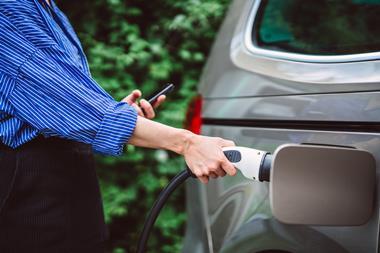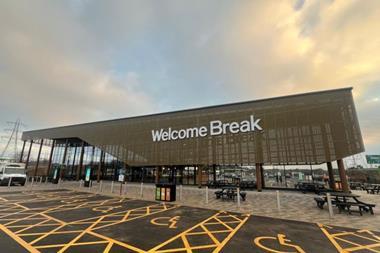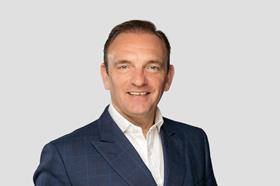
Its recent acquisition of 337 Morrisons sites cemented the business’s status as the UK’s biggest forecourt operator. In a rare interview, its chief executive reveals what comes next.
The untrammelled march of Motor Fuel Group (MFG) across the map of Great Britain may be slowing – but only slightly. After taking the business from just under 50 sites 13 years ago to 1,216 today, the management team behind the UK’s biggest forecourt chain is still eyeing acquisitions and new-build projects.
However, the focus going into 2025 is perhaps as much on its existing empire – the company announced earlier this month the completion of a refurbishment program of 337 Morrisons forecourts it added in April. Already a pacesetter in electric vehicle charging, another priority is investing in a network of ultra rapid charging hubs, many of them on the 350 acres of land acquired from Morrisons. Investment in its current estate next year will be more than £170 million, says chief executive William Bannister.
In the boardroom of MFG’s St Albans headquarters, where the 2024 Forecourt Trader of the Year trophy is on display, Bannister – part of the group behind the 2011 management buy-in – remains modest about the company’s achievements. He describes MFG’s philosophy as “big-small”, with a culture, nimbleness, and local community focus that belies the fact that it operates one in seven of the UK’s forecourts.
While not publicity-shy, MFG is not a company to brag about its success. Its executives, though open and friendly in person, rarely grant interviews, and Bannister seems almost embarrassed by the company’s dominance at the October Forecourt Trader Awards, where it was on multiple shortlists, and won five trophies, including the top accolade for its new-build site in St Clears, Carmarthenshire.
However, he is insistent about what the business is especially good at. “We have invested more than anyone since Covid, refitting between 200 and 300 stores a year to give our customers a consistent retail experience,” he says. “Our low-cost base means we have been able to use free cash to invest in our estate, including redeveloping around 50 sites a year, either knocking them down and rebuilding them, extending them, or adding foodservice.”
Another strength is MFG’s contract manager model, which allows it to keep the number of staff it has directly on its wage bill to just 350. Although the company wholly controls some 27 of its larger forecourts, the vast bulk of its outlets are franchised. Under this set-up, MFG owns the real estate, the equipment, fixtures and fittings, and the fuel, while the contract manager, as MFG calls them, is responsible for onsite retail activity, including staff. This way, the franchisee can “develop and grow the business and share in the success of the partnership,” says MFG.
Bannister’s fellow founding partner and chief operating officer Jeremy Clarke describes the arrangement as more “collaborative” than many franchises in the foodservice and hospitality sectors. Franchisees must come up with an initial refundable bond and have enough working capital to fund the dry stock.
Clarke says the advantages for franchisees are that stores are planogrammed to maximise their margin, so there is less financial risk. MFG sets a maximum retail price, but the contract manager can discount for volume, to allow them to use their entrepreneurial skills.
One criticism often levelled at MFG is that their outlets look identical. It is a suggestion Clarke sees more as a positive. Customers subliminally know what to expect when they visit one of its sites. While he admits that “we couldn’t run 1,200 stores with different planograms, and I don’t think it’s what the consumer wants anyway”, he maintains that the company regularly adapts its range according to the local market and competition.
“If there is a Sainsbury’s Local or Tesco Express on the doorstep, we will be the convenient rather than the convenience store, we won’t be competing on range with them, but we will open for longer and have the sort of products that customers always need. If there is no one next door, our stores will be the convenience outlet, and have a greater emphasis on the meal for tonight,” he says. “It’s about knowing who we are and tailoring the unit for its community and what’s around you. No two of our sites are the same.”

MFG has been majority owned by Clayton, Dubilier & Rice (CD&R) since 2015 – the New York private equity firm purchased MFG from Patron Capital Partners for about £500 million. CD&R has also owned Morrisons since 2022. That deal led the Competition and Markets Authority (CMA) to require MFG to initially freeze any further site acquisitions, and then divest 87 filling stations, which it duly completed in 2023.
While it meant MFG’s expansion went into reverse briefly, it did not take long before the company’s foot was firmly on the gas again. In January 2024, MFG agreed to purchase 337 forecourts from Morrisons along with 421 plots of land at their supermarket locations as future EV and valeting hubs. As part of the transaction, Morrisons took a 20% stake in MFG, although both businesses share the same proprietor.
MFG has also owned the Murco retail business since 2014, supplying around 190 independent dealers. Bannister describes the Murco offer as “a really good brand for the smaller, independent retailer”, and says its volumes are higher than ever.
Across its network, MFG takes fuel supply from all major brands including BP, Esso, Jet, Shell, and Texaco. While MFG, as “everybody’s biggest customer” can secure “best value” deals, Bannister insists the choice of supplier is not always about the cheapest price. “We want to provide the right brands in the right places,” he says.
A further strand of the MFG business is its Channel Islands operation, which comprises fuel distributors on Jersey and Guernsey, as well as Jersey-based Roberts Garages, acquired in 2018, and the operator of four forecourts on the island, two of them with auto centres.
Its latest full-year results – before the Morrisons acquisition – saw MFG deliver a post-tax profit of £94.2 million, down by about a third on the £154.7 million recorded in 2022. Revenues also fell, although this was largely due to the decline in the wholesale fuel price. However, its EBITDA, at £431.6 million, was the strongest in the group’s history. The year saw 47 major property development projects completed, including four new-to-industry sites and four knock-down-rebuilds.
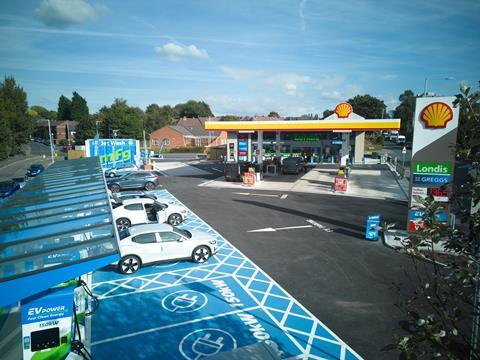
Bannister says the company will need “multi-fuel offers for a long time to come”. With its planned investment in charging hubs, MFG is responding to the move to electric vehicles, a trend that may have taken a knock recently with the fall in new EV sales. However, the company believes that take-up will get a boost as the stock of secondhand models increases, especially in London and other urban areas.
MFG says its strategy is to target “major conurbations” and that pushing ahead with its EV development programme to create “industry-leading travel retail destinations” now will make it “strongly positioned once EV penetration becomes much more significant in the latter half of the decade”. Ironically, it is the continuing strong revenues from its fossil-derived fuel sales that are helping to provide the cash for the EV investment, says Bannister.
He says MFG will have just under 1,000 EV ultra-rapid charging bays at around 200 sites by the end of the year and will add one EV hub a week next year. “We are very serious about being part of the solution to getting to net-zero,” he says. “We are the only company that has a truly national network, from Cornwall to the north of Scotland, including 150 locations within the M25 which ultimately will be the first area in the UK to be truly electrified.”
In fact, two of its sites in the capital make more revenue from EV charging than fossil fuel. London sites do well because there are lots of “early adopters”, as well as Uber and other private hire drivers who use EVs. The company claims that it already has a 25% market share of the ultra-rapid charging market within London’s orbital motorway.
However, a bigger factor in inner-city neighbourhoods is the lack of off-street parking, says Bannister. “People talk about the ease of charging at home, but that is fine for suburbia with off street parking. Seventy per cent of households in inner cities don’t have off-street parking – or 34.5% of households UK-wide – so the opportunity, and need, is there.”
MFG has a huge advantage when it comes to EV charging, he maintains, in that – unlike other chargepoint operators that rent their properties – the company largely owns its freehold sites, including the land bought from Morrisons where it plans to expand. “Having that freehold platform means you can invest long-term,” he says.
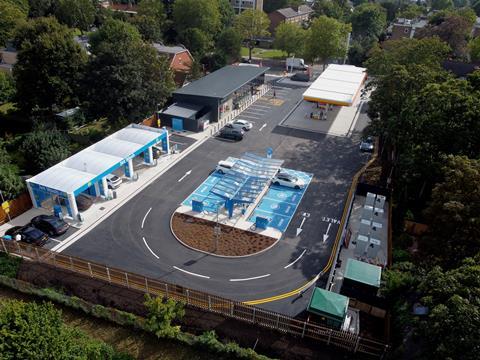
As part of its retail offer, MFG has a “fantastic” relationship with Booker and its Budgens and Londis brands, says Bannister, although Morrisons has now become one of its biggest suppliers after MFG’s acquisition of its forecourt sites. The company is “moving the dial” towards sales of fuel and non-fuel being split equally.
With foodservice becoming an ever more important part of the forecourt offer, MFG’s partners include brands familiar to the sector: Burger King, Costa Coffee, Greggs, chicken outlet Miss Millie’s, Pret a Manager, Subway, and Wrights bakery. MFG is also trialling pasta specialist Coco di Mama at two sites.
The Morrisons acquisition had two key benefits: it meant MFG could increase its forecourt footprint by about a quarter and introduced a new convenience partner. However, another key draw was the 350 acres of land – at 421 sites – that were included in the transaction. MFG will use these plots – most of which are in car parks separate to petrol stations – to open valeting centres, fast-food concessions, and, most importantly, EV charging stations.
Already, MFG has begun to develop the areas of land, including at St Ives in Cambridgeshire, Preston, and Cromer in Norfolk. MFG plans to install around 400 ultra-rapid 150kW+ bays per year up to end of the decade, many on Morrisons sites, taking its ultra rapid EV network to more than 1,300 bays by the end of 2025.
While additional sites are still very much on the cards, Bannister says adding scale is no longer the imperative. Instead, investment in the current estate – focusing on retail and foodservice, and becoming the leader in EV charging are the priorities. “We can very much concentrate on developing our estate and improving the customer experience as that is where our growth will come from,” he says. “We have been collecting toys. Now we want to invest in these toys.”




